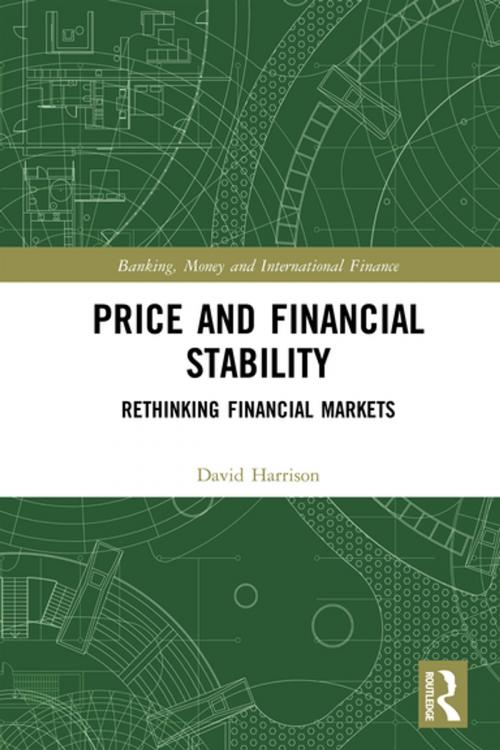Price and Financial Stability
Rethinking Financial Markets
Business & Finance, Accounting, Financial, Finance & Investing, Banks & Banking| Author: | David Harrison | ISBN: | 9781351579216 |
| Publisher: | Taylor and Francis | Publication: | May 15, 2018 |
| Imprint: | Routledge | Language: | English |
| Author: | David Harrison |
| ISBN: | 9781351579216 |
| Publisher: | Taylor and Francis |
| Publication: | May 15, 2018 |
| Imprint: | Routledge |
| Language: | English |
Why are financial prices so much more crisis-prone and unstable than real economy prices? Because they are doing different things. Unlike real economy prices, rooted in the real goods and services produced and exchanged, financial prices attempt to value future income flows from financial and capital assets. These valuations fluctuate erratically because expectations of the future fluctuate – and large liquid financial markets can amplify, rather than correct, these effects. The book builds on the insights of economists Frank Knight and John Maynard Keynes, that uncertainty of the future is essential to understand the processes of economic production and capital investment, and adds to this Karl Popper's general explanation of how expectations of an uncertain future are formed and tested through a trial and error process. Rather than relying on fluctuating financial prices to provide a guide to an uncertain future, it suggests a better approach would be to adopt the methods common to other branches of science, and create testable (falsifiable) theories allowing reasonable predictions to be made. In finance, the elements of one such theory could be based on the concept of forecasting yield from capital assets, which is a measurable phenomenon tending towards aggregate and long-term stability, and where there is a plentiful supply of historic data. By methods like this, financial economics could become a branch of science like any other. To buttress this approach, the widely accepted public policy objective of promoting real economy price stability could be widened to include financial price stability.
Why are financial prices so much more crisis-prone and unstable than real economy prices? Because they are doing different things. Unlike real economy prices, rooted in the real goods and services produced and exchanged, financial prices attempt to value future income flows from financial and capital assets. These valuations fluctuate erratically because expectations of the future fluctuate – and large liquid financial markets can amplify, rather than correct, these effects. The book builds on the insights of economists Frank Knight and John Maynard Keynes, that uncertainty of the future is essential to understand the processes of economic production and capital investment, and adds to this Karl Popper's general explanation of how expectations of an uncertain future are formed and tested through a trial and error process. Rather than relying on fluctuating financial prices to provide a guide to an uncertain future, it suggests a better approach would be to adopt the methods common to other branches of science, and create testable (falsifiable) theories allowing reasonable predictions to be made. In finance, the elements of one such theory could be based on the concept of forecasting yield from capital assets, which is a measurable phenomenon tending towards aggregate and long-term stability, and where there is a plentiful supply of historic data. By methods like this, financial economics could become a branch of science like any other. To buttress this approach, the widely accepted public policy objective of promoting real economy price stability could be widened to include financial price stability.















